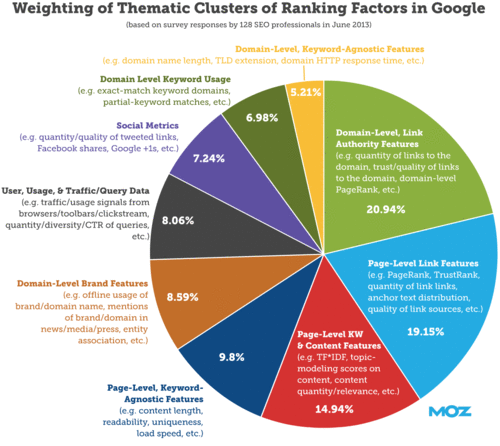As one of the most visited websites around the globe, with over 12 billion searches sent through its engine per month and owning 67.5 percent of the U.S. search market, Google can play a huge role in the popularity of your own site. Whether it's business-related or you're just trying to establish yourself as a presence and brand online.
SEO may seem like magic to an outsider. It is a structured approach and measured practice of optimizing your pages (and website) to improve your find-ability factor in search engines. If done right you can get listed on top of the first page of results for your specific keywords. While nothing in life is really free, your listings that are shown in the organic, natural results will not ding your wallet each time a searcher clicks. (That's the model for paid advertising, like Google Adwords).
Here are 7 things that everybody should know about Google search optimization.
1. Google Is Always Evolving
Google is constantly changing and evolving at a high speed, and it has had a steady level of growth over the past decade with new software, patents, products, web properties, and corporate acquisitions accumulating over time.
"Among Google's goals: Improve the user experience by delivering relevant, fresh, quality content and, at the same time, crack down on those using questionable search engine optimization techniques to gain unjustified ranking position." - CIO.com
The index also changes and that alters operations. Due to these changes it's impossible to ever completely comprehend the Google algorithms or make any sort of permanent change to your site that will always comply with the standards that Google is keeping. Add to this the fact that Google's main business is paid advertising and naturally wants businesses and users to engage there.
Further reading:
1. Google monthly searches
2. Google financial tables
2. Everybody Wants A Piece Of The Google Action
This might seem obvious. You know at the back of your mind that all of your competitors are also vying for that top spot on the search list.
"If your business has an active, well optimized and maintained website with high quality unique content, then you may find yourself a step ahead already." - SEJ
This isn't enough, however. If your company has no real online presence; has not built trust via quality links or has a random selection of social media profiles, blogs, and widgets that provide little value or tries to manipulate Google to try to acquire high positions unnaturally, you could be losing out. Your competitor may have already overtaken you, and web traffic is decreasing.
Further reading:
1. Search Engine Journal (SEJ)
2. Webmaster guidelines
3. Watch out for SEO scam artists
3. Quality Matters Most To Google
Believe it or not, one of the most important concepts that you must understand when it comes to Google is that their standards for the quality of content are very high.
Despite the millions of website operators who strive for better rankings within the search engine, the most important parties to Google are their (paid) users, which means that they want to provide content that satisfies and makes readers come back again and again.
VIDEO: What makes a great website?
4. Structure Your Data When You Can
We know that although not everything needs to be structured and organized into some specific schema, Google prefers structured data as much as possible as it's easier to analyze and requires less computing resources. Google responds by greatly increasing your chances for visibility and traffic. Especially when they know the best data to present to readers, whether it's a product listing, video, news or event announcement.
5. Don't Buy Links, Work For Them
It may be possible to build up the number of links back to your site by purchasing them in some way, but this is viewed as a negative behavior by Google.
The truth is that if you buy your links, then they aren't likely a good representative of how honest your content is. Google is cracking down on this behavior and give out penalties where they see it occurring. Even if you were not aware of it. You can earn links the hard way through great quality information and products that people want to see. It may then be shared naturally.
6. Get On Board With Google+
It hasn't appeared to be one of the most popular social media sites on the internet, but using Google+ does tend to have a correlation with search engine rankings. Your personal network will see it. Even if the use of this tool only provides a miniscule difference in the grand scheme of things, every little bit helps in your online presence building.
7. Get Moving
The content of your site is the most important aspect that Google wants you to focus on for SEO benefit. Rankings may and will come over time, but there are hundreds of factors to the Google algorithm. Content and links are critical, but so is the speed at which your website and pages operate.
Success or failure of your website is ultimately measured in visibility, traffic, stickiness (how long visitor stay and if/when they come back) your message and positioning, as well as conversions (sales). With so many moving parts, make sure your content is readily available and that your pages load fast. Improve your site speed and make users and Google happy in the process.
WHAT'S NEXT?
Before you add a second story to your house or construct a brand new home, be clear on where you are and what you want. For Google SEO, that means getting an SEO Audit.
More resources:
1. Sitespeed check
2. SEO audit reporting
3. Online page speed tool
photo credits:
pasukaru76
Moz Ranking Survey
kevin dooley



